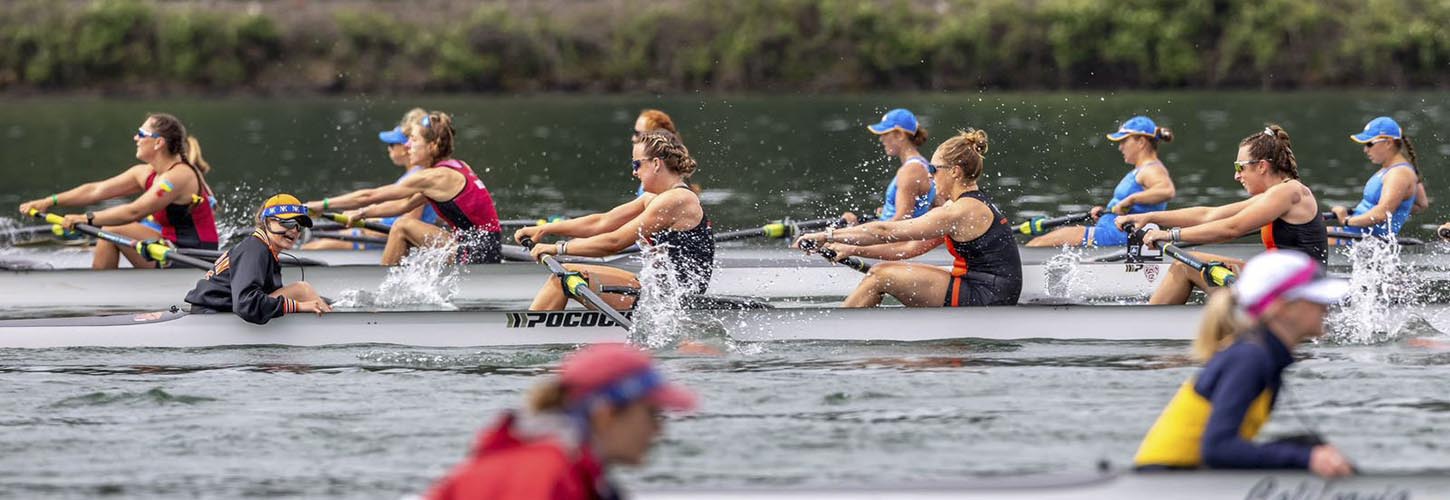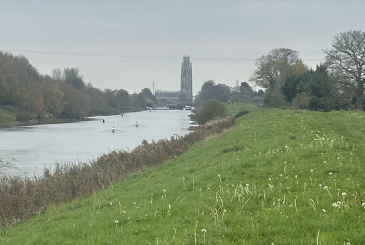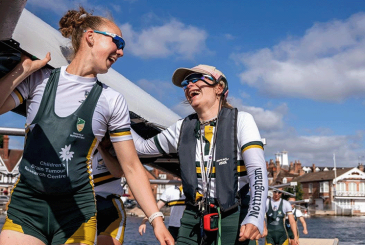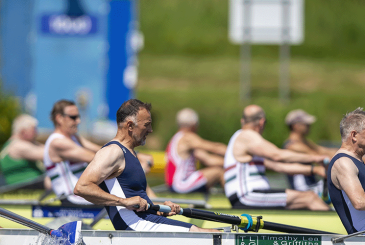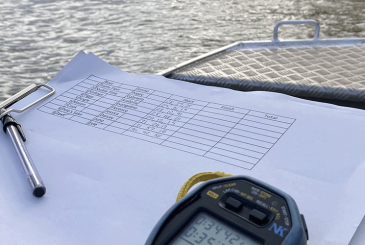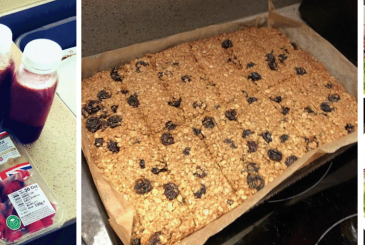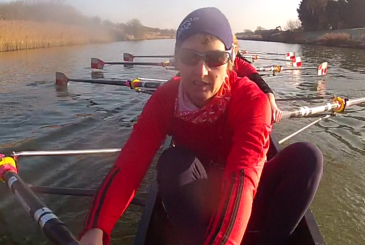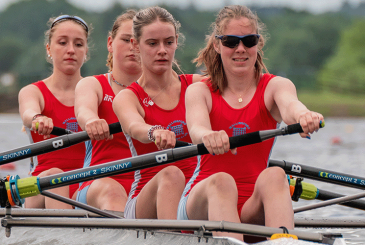For the UK’s top junior rowers, there’s a well-established pull to pursue rowing and education at some of the US’s top rowing universities. Phoebe Horan of Junior Rowing News spoke to former GB juniors Zoe Adamson (Oregon State University) and Simon Nuyanon (Harvard University) to understand more about the US collegiate system and what makes it such an attractive proposition
Selling yourself and shopping around
The journey to join a leading US university is understandably long. Before you get on a plane with your laptop, rowing kit and maybe your teddy, there’s a laborious recruitment cycle. “I went on loads of official visits during my gap year,” said Zoe (at six in the photo above). “The recruiting process can be brutal so if you’re considering it, make sure to shop around as it’s best to have more than one offer”. Rowing isn’t the only component in making these tough decisions; on one visit, a coach encouraged Simon on his visit to consider where he’d want to be without rowing.
The recruitment cycle is not always plain sailing either, as Simon explained. “I was given the impression that I would have a spot at one university after positive feedback. On admission results day six months later, I ended up unsuccessful”. In the end, Harvard – one of the world’s most prestigious educational institutions – ticked all the boxes Simon was looking for after a sensational junior career culminating in a win in the Princess Elizabeth Challenge Cup at Henley Royal Regatta. “It offered me the key intersection between a good university engineering course matched by a world class rowing programme, which is often difficult to find”.
Criteria for consideration
No British university programmes can match US scholarships. “Scholarship benefits are huge compared to what’s on offer in the UK,” outlined Zoe. “I would have loved to stay in the UK but that kind of money for sport just isn’t available”. It isn’t just a consideration in relation to rowing either – this sort of funding opens up numerous other opportunities, including the ability to travel and meet a variety of new people in new environments. “This was a critical part of my decision-making,” explained Zoe. “I wanted to make sure my experience was as well-rounded as it could be”.
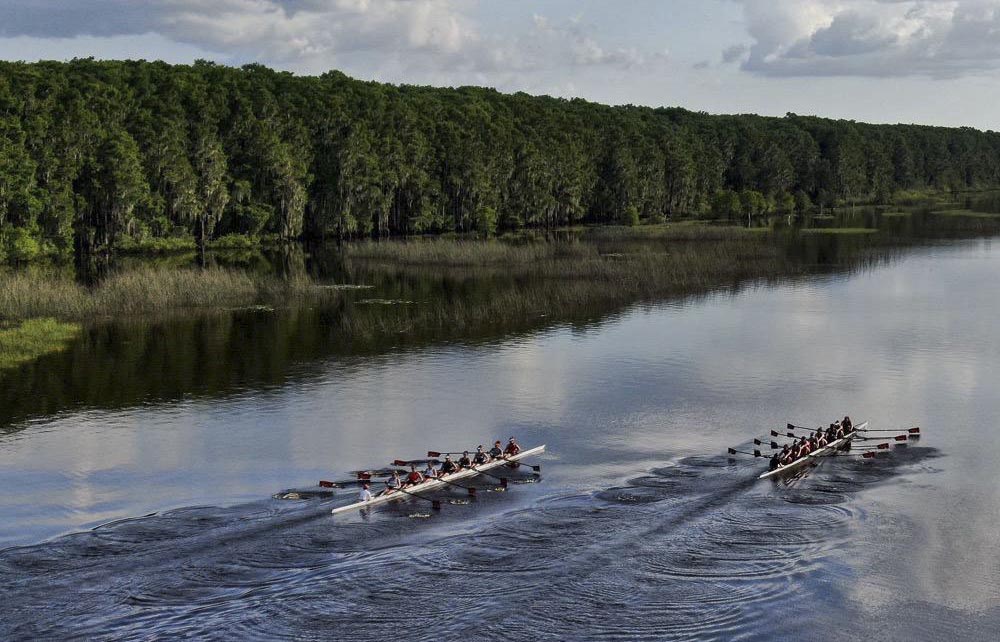
Both athletes also aimed to immerse themselves in an educational community that suited them and matched their personal ambitions. Perhaps central to this is the nature of the curriculum where the broad approach to higher education in the US contrasts with the specialism of UK courses. “I really enjoyed being able to branch out into other subjects,” explained Simon. “I’ve had the chance to study Japanese and even take a sleep science class. Access to this broad and varied syllabus isn’t an option back home”.
Bedding-in
Both Zoe and Simon experienced culture shock in their new and dramatically different surroundings. “I was the only international student in my class,” said Zoe. “I had to quickly adjust how I spoke, I had to adapt my sense of humour and my accent, and the food I ate was another challenge!”
Spending four years abroad – away from your closest friends and family – is bound to be challenging. Everyone will experience ups and downs of both their athletic and academic careers. The US-based students highlighted the importance of their team in making this a home away from home. “One of the best parts about Harvard is the people,” said Simon. “There’s a very wide range of characters whereas other colleges tend to be more homogeneous.”
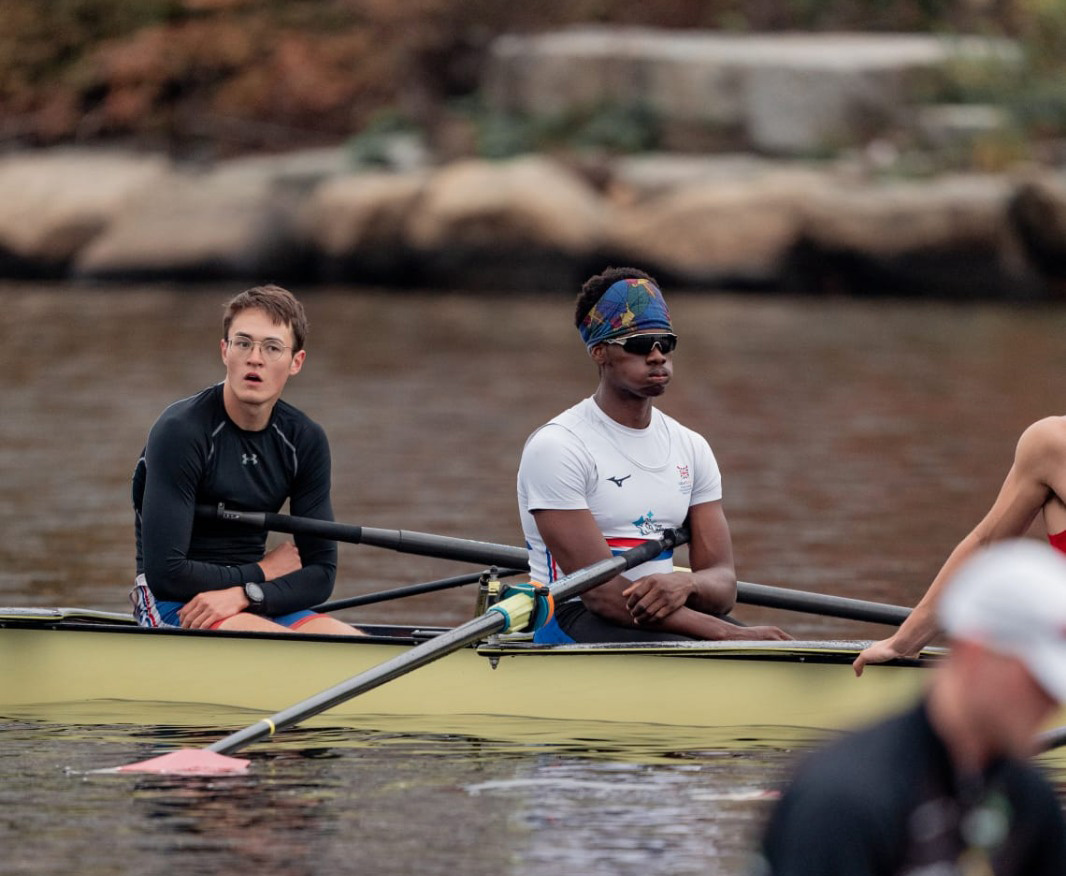
“The team is the biggest thing,” echoed Zoe. “I had an injury and a couple of surgeries but without the group around me I wouldn’t have got through the four years – they are always there for you”.
What next?
After four years of rowing and studying in the US, newly graduated rowers face their biggest challenge yet – what to do next. Simon, who still has a year left at Harvard, spoke about what he thinks will consume much of his thinking. “The biggest decision after I graduate is how much rowing I do after I leave the States. On one hand, I could try to pursue a place in the senior squad, which is essentially a full-time commitment. The other option is to embrace the real world, try to get an internship this summer and then secure a job offer”.
Zoe explained that postgraduate opportunities in the US are often hard to find. “It’s quite tricky to stay here if you don’t go into coaching,” she said. “I’ve just started a coaching role at a university in Virginia – my college rowing gave me the tools to get that job. I think I secured it because people really do love hiring athletes and all the attributes that come with it”.
Summary
Deciding where you want your life to go next after leaving school is complex. Leading US institutions covet top UK junior rowers and other athletes and it’s easy to rush the decision. The sheer scale of opportunities on offer is mind-bending and, at times, distracting.
The chance to grow, develop and flourish stateside is one that should be seriously considered though. And don’t forget that studying in the US has been a pathway to senior international success for several prominent GB Rowing Team athletes. Above all else, the choice should be qualified by what will truly make you happy. Reflecting on his three years at Harvard, Simon provided perhaps the most appropriate summary: “The person I will be after university will be dictated by where I go”.
Photo credit: Erik Dresser
What do YOU want to read about on British Rowing Plus?
What do you find interesting here on British Rowing Plus that you’d like more of? What haven’t we covered yet that you’d like to read about?
Let us know by emailing [email protected]


